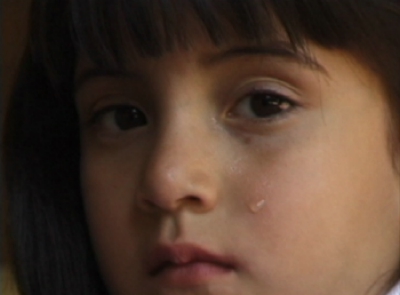.
 |
|
The Parent's Guide to Child Abuse: 17 Warning Signs and Ways to Prevent It
by Tanvier Peart
Every 10 seconds, child abuse is reported. Everyday, four to seven children die from child abuse and neglect. As unfathomable as it is to ever think someone would want to hurt a child, sadly, it's happening. What's even more heartbreaking is that many children are suffering in silence as their parents have no idea they're being victimized.
"We currently live in a day and age where abuse is on the rise and children are falling victims on daily basis, without their parent's awareness," notes Kemi Sogunle, award-winning author and founder of the nonprofit Love Not Hurt. As moms and dads, it's our job to do our best to protect our kids. |
No matter how uncomfortable the subject of child abuse is, it needs to be discussed.
Here are common warning signs for parents to look out for, and steps moms and dads can take to help keep their children safe.
Child abuse warning signs Dr. Claire Nicogossian is a licensed clinical psychologist who has created the following shortlist of child abuse warning signs based on her 20 years experience and past observations.
• Noticeable personality changes (depending on the child's age and severity of the situation)
• Nightmares, difficulty sleeping, and regressive behavior -- like bed-wetting or urination accidents with no previous history, and acting younger in a dramatic way
• May display sexualized or inappropriate behavior
• Are extra clingy
• Maladaptive coping --including hairpulling, cutting, skin picking, loss of appetite or excessive eating (even food hoarding)
• Anger or aggression towards self and others, especially at school (acting out)
• Changes in academic performance, like a decline in grades and being withdrawn from once enjoyable activities and pastimes
• (Unexplained) bruising, injuries, and scars -Reluctance to be alone or with a particular person
Dr. Nicogossian also points out that child abuse often occurs with someone the child knows (a neighbor, caregiver, family member, friend). In addition to physical cases, child abuse also encompasses emotional and sexual abuse.
How to protect your child from abuse
As Dr. Eliza Belle, a licensed psychologist, says all parents can do is the best they can. While there's no way to guarantee your child will never experience hurt or pain, here are a few steps parents can take to help protect their child from abuse.
Try to build trust. "Children often view parents as the opposition or enemy, depending on the stage of development they're in. This is why it's so important to try and build trust through truth, and not just a strict set of rules," advises Dr. Belle.
Listen. Even if it's unrelated to abuse, get in the habit of allowing your child to come to you for open and honest discussion. And, when your kid tells you something, believe it.
Don't be afraid to get real. Have an age-appropriate discussion with your child about the realities of this world. Talk with your son or daughter about body parts and inappropriate play.
Reassess your squad. It's okay to be cautious about who you let spend time with your child. "When choosing friends and intimate partners -- as well as family members and co-workers -- to be in the same space as your child, take the time to assess who they really are. Wanting to be vigilant and preventative doesn't have to cause suspicion or fear of every person that isn't you. It does, however, require you to be cognizant of who's in your life," warns Dr. Belle. "Do not readily leave your child alone with people without careful consideration."
Follow up with your child. How was your day? What kind of things did you and [name of caregiver] do? There's nothing wrong with asking your child open-ended questions about their day with someone when you weren't present.
Reaffirm and praise your child. "Many child abusers prey on children who show signs of low self-esteem, a fear of failure, or being let down," notes Dr. Belle. Always lead with love, and reiterate to your child that he or she is good enough.
Don't go to the extreme. "Make discipline choices for your children that are appropriate and reflect your intended outcome. Extreme or spontaneous physical punishment can cause an unhealthy view of correction. In fact, some children will grow to expect it from other loved ones -- and even strangers," Dr. Belle points out.
Always trust your gut!
~~~~~~~~~~~~~~~~~~~~~~~~~
http://www.essence.com/2016/05/26/parents-guide-child-abuse-17-warning-signs-and-ways-prevent-it
. |